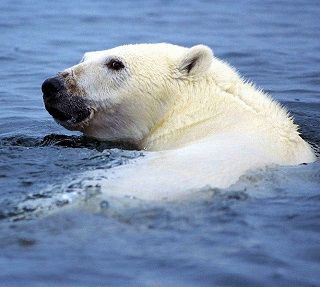Should We Worry About “Abrupt” Climate Change?

Here’s something that hasn’t been around too long: the concept of “abrupt” climate change. Yes, virtually all of our scientists tell us that the planet is warming due to human activity, and yes, there are feedback loops that have the potential to accelerate the melting of the arctic resulting in the release of the methane beneath the (until now) frozen tundra, thereby speeding up the process. Other consequences of climate change are the desertification of our arable farmlands, and the rise of our sea-levels. The climate change deniers, to the extent that they care about this stuff at all, worry about ocean acidification (the destruction of our ocean ecosystems), loss of biodiversity, the threats to national security, and the skyrocketing rates of childhood cancer.
But the last time I spoke with one of my colleagues whose life’s work was climate science, I walked away fairly confident in the incredibly well-developed computer models he showed me, which suggested that he and the thousands of other top-notch people who study the trends in the Earth’s atmosphere know what they are doing, and the correctness of their predictions showing a steady, slowly accelerating rise in temperature that will gradually devastate our civilization long after I’m dead, i.e., over the commonly accepted period, the next 50 – 100 years.
But now there’s this: “The most challenging changes (to our climate) are the abrupt ones,” said James White, a professor of geological sciences at the University of Colorado in Boulder and chair of the committee that prepared this report linked above. Please check it out, and weigh in on what you think it means.

Craig: The problem is the process is too slow to call attention, but if something happens abruptly, then we will start hearing about these “surprises”. Sad, but it’s the way seem to seep into conciousness, slow processes are too soft on our senses.
Educated people should realize, but then again, it’s easier to put worries behind (until they hit us in the face).
Craig,
The worry over what we don’t understand, and what MIGHT happen that is outside the bounds of the computer models, is probably the only thing that keeps me in the camp with the arm-waving environmentalist crowd. (I’d never join the denialists – I suffer from too high of an IQ to ever be associated with their lot… but I have quite a few disagreements with the far left as well – something you’ve grown to understand).
But the most significant example of sudden climate change that we’ve had preserved in humankind’s collective memory was the collapse of the Scandinavian Ice Shelf. (More commonly remembered as “Noah’s Flood”).
In that case, it was simply the Milanchovich cycle progressing, but the Earth was undergoing gradual climate warming for several thousand years, and suddenly the entire world changed over a very short span. It’s estimated that the entire Scandinavian Ice Shelf collapsed into the sea in only a few short decades… at some point within those decades, the earthen dam separating the Black Sea Basin from the Mediterranean Sea broke, then the lush valley that was the earliest center of industrial agriculture was destroyed and scattered within a few weeks.
The Greenland Ice shelf carries a large number of similarities to the former Scandinavian Ice Shelf… A sudden collapse – spanning a couple of decades – is not impossible. I believe the models are greatly understating the potential for collapse in that case.
Far less likely within this century, it’s possible that the West Antarctic Ice shelf may face collapse after the Greenland Ice Shelf goes.
We are in a technological period in which the first world could absolutely respond to an ice shelf collapse scenario, but it would cost trillions/year and would be an economic hit greater than that faced by any nation in recorded history.
I haven’t read the report you linked to… and I will read it carefully at some point – but I don’t really see any likelihood of a drastic, rapid change other than the possible collapse of the ice shelfs. I believe that there’s just too much thermal mass for anything that cannot flow to face sudden change.